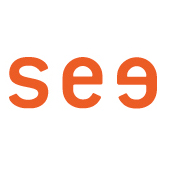Since November 20, students in Germany can receive the KfW student loan temporarily at an interest rate of 0%.
- Eligible to apply are students who are enrolled at a state or state-recognized university in Germany at the time of application, who live in Germany and who have not been on leave of absence. This applies to students from Germany and abroad, without age limit.
- The grant is awarded monthly up to a maximum amount of 500 euros.
- Responsible for processing applications are the 57 regional student and student services organizations, whereby applications are submitted exclusively online via the established nationwide standardized IT platform.
- An application is possible again since 20.11. The online tool for the application can be found here: https://www.überbrückungshilfe-studierende.de
- The bridging aid as a grant is only one part of the BMBF package for students in pandemic-related emergencies. Another important pillar of the bridging assistance is the KfW student loan. This is a proven program of the Kreditanstalt für Wiederaufbau (KfW). Since 2006 it has offered students the opportunity to borrow up to 650 euros per month. In principle, students of all state-recognized universities in Germany between the ages of 18 and 44 years who meet one of the following requirements are eligible for the loan:
- German citizens with a domestic registration address
- Family members of a German citizen who are staying in Germany with him and are registered here,
- EU-citizens, who have legally resided in Germany permanently for at least three years and are registered here
- Family members of such an EU citizen who are staying in Germany with him and are registered here,
- Bildungsinländer and registered in Germany.
- For the bridging aid already in the spring the circle of entitled persons of the classical KfW study loan was extended limited up to 31.March 2021. This means that international students - EU citizens and all countries worldwide who have only been in Germany for a short time - can also take advantage of this loan.
- The loan was initially limited until March 2021 and is interest-free for all borrowers. This interest subsidy will now be extended until the end of 2021. The BMBF will cover the costs
The proven application procedure applies. In principle, the general conditions of the KfW student loan apply with a maximum monthly payment of 650 euros.
More detailed information: www.kfw.de/studienkredit-coronahilfe.
Further information:
FAQ of the BMBF on bridging loans:
https://www.bmbf.de/de/wissenswertes-zur-ueberbrueckungshilfe-fuer-studierende-11509.html.
After reading the FAQ, the BMBF's bridging aid hotline will answer the most important questions on bridging assistance:
Phone: 0800 26 23 003
Service hours of the hotline:
Tuesday, Wednesday and Thursday from 8:00 to 16:00
Friday from 8:00 to 12:00
Only StudierendenWERK BERLIN can answer individual questions on applications: see: Bridging aid funded by the Federal Ministry of Education and Research (BMBF)
